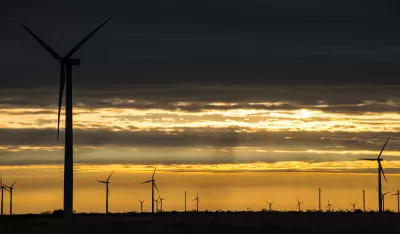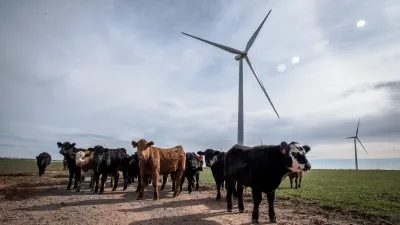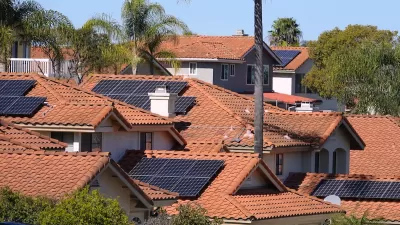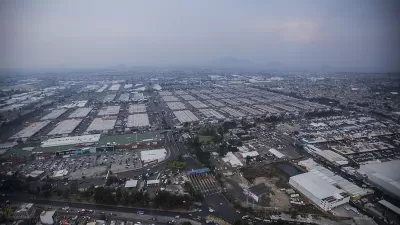Texas leads the country in wind energy production, but it, and other conservative states, continue to resist efforts to promote the switch to renewables.

"The states that are most deeply integrated into the existing fossil-fuel economy, either as producers or as consumers, tend also to be the places that are most resistant to, and separated from, the major demographic, cultural, and economic changes remaking 21st-century American life," writes Ronald Brownstein. "The majority of them rank near the bottom among the 50 states in the share of their residents who hold four-year college degrees, are foreign-born, or work in occupations tied to the new digital economy, according to census figures."
These states also take other socially conservative positions such as abortion restrictions, book bans, and limited LGBTQI rights. Besides highlighting America's cultural divide, this trend, according to Brownstein, "shows how difficult it will be to establish any consensus for national action to accelerate the shift from fossil fuels to clean energy sources, despite the mounting evidence that climate change threatens all regions of the country (and the world)."
Yet some of the most conservative states are also some of the nation's biggest clean energy producers, with Texas leading the country in renewable energy projects. Brownstein describes how political leaders often stand in the way of incentives that would boost the renewables economy and create jobs in their states.
"The bipartisan infrastructure bill that Biden signed last year included several provisions designed to channel jobs in the clean-energy economy toward places that would be hurt by diminished reliance on fossil fuels, such as coal communities," but the plan remains stalled in Congress.
Renewable energy has grown steadily as a source of power in the U.S. In December 2021, nearly 24 percent of electricity came from renewable sources, up from 19.4 percent in December 2020. Brownstein questions how long, given the economic realities of fossil fuel supplies and energy production, the transition to clean energy can remain a politically divisive issue.
FULL STORY: The Green-Energy Culture Wars in Red States

Planetizen Federal Action Tracker
A weekly monitor of how Trump’s orders and actions are impacting planners and planning in America.

Maui's Vacation Rental Debate Turns Ugly
Verbal attacks, misinformation campaigns and fistfights plague a high-stakes debate to convert thousands of vacation rentals into long-term housing.

Restaurant Patios Were a Pandemic Win — Why Were They so Hard to Keep?
Social distancing requirements and changes in travel patterns prompted cities to pilot new uses for street and sidewalk space. Then it got complicated.

In California Battle of Housing vs. Environment, Housing Just Won
A new state law significantly limits the power of CEQA, an environmental review law that served as a powerful tool for blocking new development.

Boulder Eliminates Parking Minimums Citywide
Officials estimate the cost of building a single underground parking space at up to $100,000.

Orange County, Florida Adopts Largest US “Sprawl Repair” Code
The ‘Orange Code’ seeks to rectify decades of sprawl-inducing, car-oriented development.
Urban Design for Planners 1: Software Tools
This six-course series explores essential urban design concepts using open source software and equips planners with the tools they need to participate fully in the urban design process.
Planning for Universal Design
Learn the tools for implementing Universal Design in planning regulations.
Heyer Gruel & Associates PA
JM Goldson LLC
Custer County Colorado
City of Camden Redevelopment Agency
City of Astoria
Transportation Research & Education Center (TREC) at Portland State University
Jefferson Parish Government
Camden Redevelopment Agency
City of Claremont





























